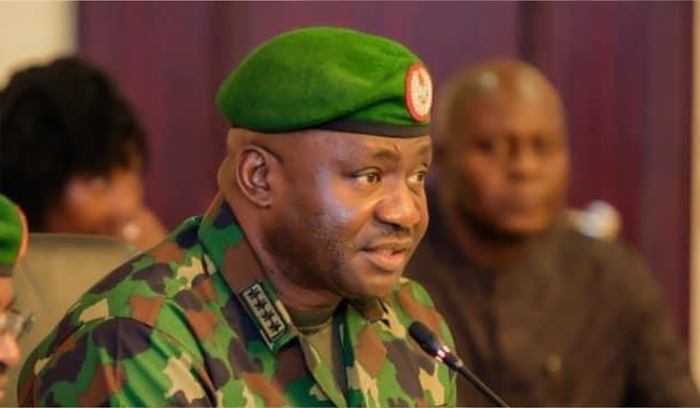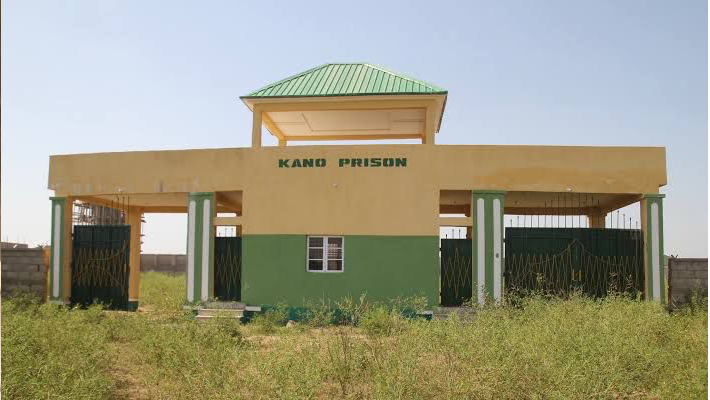Military Command Change in Borno Amidst Northern Insecurity

In response to escalating attacks in Plateau, Borno, and other states, the Nigerian military has initiated tactical adjustments across its operational framework. These changes, commencing with the Nigerian Army, which is responsible for ground troop deployment against external threats, are slated to extend to the Nigerian Air Force and the Nigerian Navy in the coming days. Highly placed military sources have revealed that a redeployment of senior officers is underway to reinforce ongoing operations.
Key personnel movements include the reassignment of the Theatre Commander for North East Operation Hadin Kai (OPHK) in Borno State and the Commandant of the Nigerian Defence Academy (NDA) in Kaduna. Major General A.E. Abubakar is now designated as the new Theatre Commander for OPHK, while Major-General A.K. Ibrahim assumes the role of Commandant at the NDA. These commanding officers, along with other strategically redeployed commanders, are expected to take up their new positions following the Easter holiday.
Major-General Shuaibu Waidi had previously assumed leadership of the theatre on January 30, 2024, succeeding Major-General Gold Chibuisi, with the mandate to sustain the counter-terrorism efforts against Boko Haram and ISWAP. However, Borno State Governor Babagana Zulum recently expressed concerns that the impact on insurgent activities has been minimal. During an expanded Security Council meeting in Maiduguri, Zulum highlighted the state’s vulnerability to renewed turmoil, citing the dislodgement of several military locations, particularly in areas such as Wulgo, Sabongari, and Wajirko. He noted a perceived loss of ground and emphasized the urgent need to address the resurgence of sporadic attacks that threaten the hard-won peace of the past three years.
Additional redeployments include Major-General B.I. Alaya as the Director-General of DICON, Major-General M.K. Gara, and Commander K.O. Ukandu for Operation WHIRL STROKE.
Reacting to the redeployments and the resurgence of attacks, retired Brigadier-General Bashir Adewinbi stressed the limitations of purely military solutions and advocated for the integration of political strategies. He acknowledged that redeployment is a routine practice in the army, intended to optimize personnel placement and ensure comprehensive security coverage. According to Adewinbi, the right individuals are strategically positioned to address any existing vulnerabilities. However, he cautioned that military actions alone are insufficient to resolve the multifaceted issues driving insecurity, emphasizing the necessity of political solutions tailored to the unique challenges within each affected state.
Adewinbi further elaborated on the inherent problems within the states, which exacerbate insecurity, and called for the active involvement of citizens and politicians in creating a secure environment. This includes providing timely information to security agencies and refusing to harbor criminals. He underscored that while the military plays a crucial role, its success depends on community collaboration, as the military cannot maintain a constant presence. Adewinbi urged stakeholders to honestly assess the root causes of the problems and avoid politicizing security matters, particularly with upcoming elections. He concluded with a call for collective effort to tackle the prevailing insecurity.
Mike Ejiofor, a retired director at the Department of State Services, shared his perspective, suggesting that redeployment alone would yield limited results without enhancements in tactical and strategic operations, incorporating new technology, and improving the welfare of frontline troops. Ejiofor recalled similar calls for leadership changes during the Jonathan and Buhari administrations, noting that altering personnel without addressing fundamental service conditions would not produce significant improvements. He advocated for prioritizing troop welfare, advancing technological capabilities, and actively involving community members as a first line of defense, given the insufficient troop numbers to manage all challenges effectively.
In related news, the Nigerian Air Force (NAF) reported successful air interdiction missions by its Air Component of Operation Hadin Kai, targeting terrorist strongholds in the Sambisa general area and the Southern Tumbuns of Borno State. Air Commodore Ehimen Ejodame, NAF spokesman, detailed two specific strikes. The first, at approximately 5:30 a.m. in Kollaram, targeted a known insurgent stronghold based on intelligence reports and surveillance footage confirming the presence of high-value terrorist commanders. The precision strike eliminated several fighters and disabled key infrastructure, including structures equipped with solar panels.
A second precision strike occurred around 3:55 p.m. in Arra, Sambisa, following Intelligence Surveillance and Reconnaissance missions that detected clusters of terrorists. Real-time visuals confirmed a significant presence, leading to the deployment of precision-guided munitions that effectively destroyed targets and disrupted the group’s operational capabilities. Ejodame emphasized that these missions are part of a sustained air campaign aimed at degrading terrorist capabilities, dismantling leadership structures, and eliminating sanctuaries across Nigeria, reaffirming the NAF’s commitment to preventing any location within the country from offering safe haven to terrorists.










